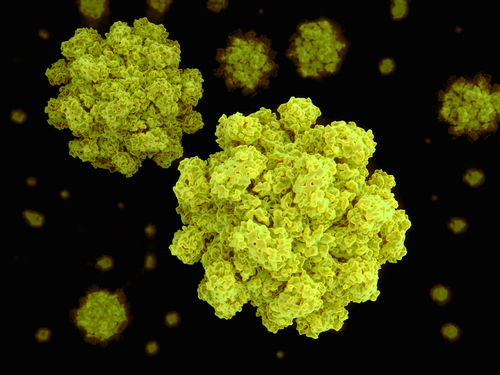
Researchers supported by the National Institute of Allergy and Infectious Diseases (NIAID) recently developed a novel system to grow norovirus in intestinal cells, which could bring about new therapeutic drugs and vaccines to combat the virus.
Intestinal cells are the natural site of norovirus infection, a leading cause of food borne illness that is highly contagious, with symptoms including stomach pain, nausea, diarrhea and vomiting. The virus is diagnosed in approximately 400,000 people each year in the United States, mostly among young children and the elderly.
The virus is difficult to study because of the inability to grow it outside of the human body. To counter this, researchers at the Baylor College of Medicine developed human intestinal tissue from stem cells isolated from the small intestine. The researchers then infected the cultured tissue with different strains of the virus, with some having more success than others. To promote virus growth, the research team added human, bovine and pig bile to the intestinal cells.
The new system could have applications for food safety and the development of new diagnostics.
The National Institutes of Allergy and Infectious Diseases (NIAID) conducts and supports research to study the causes of infectious and immune-mediated diseases and to develop better means of preventing, diagnosing, and treating related illnesses.




